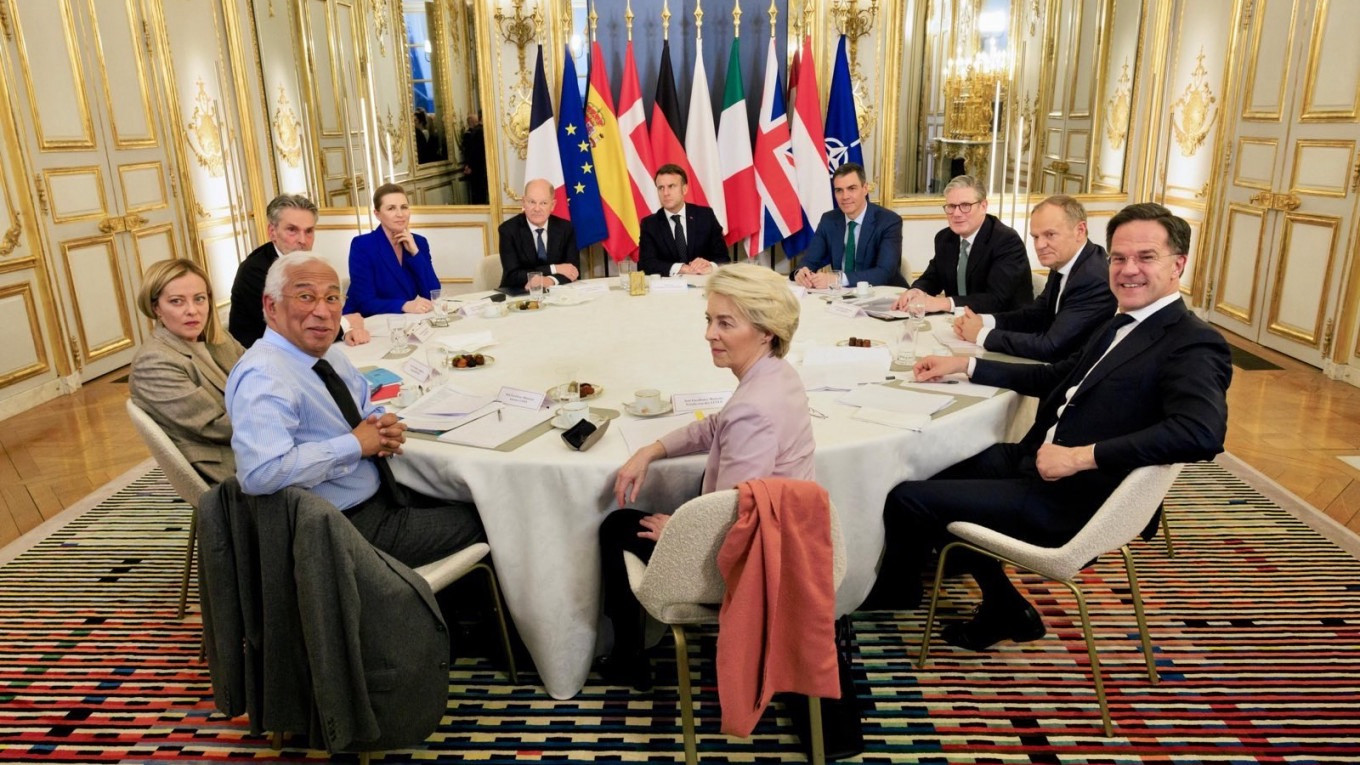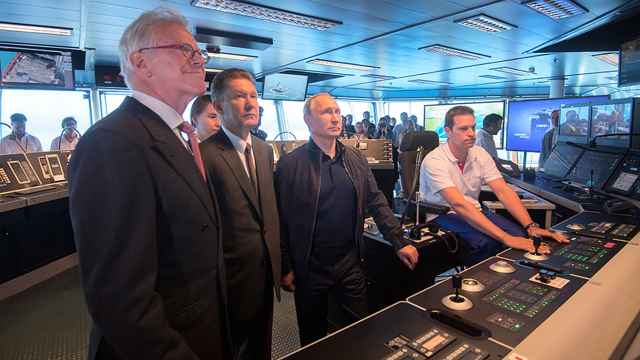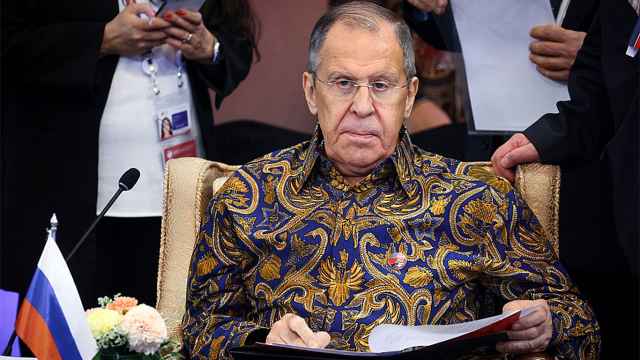Delegations from the U.S. and Russia met in Riyadh to kick off negotiations for a potential Ukraine peace deal. Despite the humiliation of being sidelined from talks over a war being fought on its own doorstep, Europe’s response has been limited so far.
French President Emmanuel Macron convened an informal meeting with only six EU leaders (Italy, Germany, Poland, Spain, Netherlands and Denmark) in addition to the British Prime Minister, the president of the EU Commission, the president of the EU Council and the NATO Secretary General. Predictably, it ended without any concrete decisions, showing once again that Europe simply does not exist as a political actor, at least when it comes to critical international crises.
Europe’s missteps are numerous and date back to the early stages of the Russian invasion of Ukraine. Initially, European countries displayed rare unity, approving unprecedented sanctions, as well as economic and military aid packages at record speed.
However, this early cohesion failed to produce any feasible political solutions. Instead, European elites advocated for a continued military and rhetoric escalation that was mostly reliant on U.S. resources. Europe’s leadership consistently supported Washington’s decisions to push forward the red lines on military assistance — from sending Leopard tanks to backing strikes inside Russian territory — despite lacking the material capabilities and the clear long-term vision to sustain these policies without the U.S.
This military escalation was accompanied by an aggressive political rhetoric, including unrealistic ambitions such as the “irreversible path” toward NATO membership for Ukraine. Even the symbolic granting of EU candidate status to Ukraine did little to enhance Europe’s credibility. Instead, it further eroded trust in the EU enlargement process, which many — especially in the Western Balkans — see as stalled and politically manipulated.
EU institutions significantly contributed to the current political failure of the continent. The radical transatlantic stance has been a pillar of EU defense strategy and solidified further with the 2024 elections.
The newly assembled European Commission handed the Baltic states — with their historically rooted hawkish views toward Russia — significant influence over EU security policy. Former Estonian Prime Minister Kaja Kallas was appointed High Representative for Foreign Affairs and Security Policy, while Andrius Kubilius, former Lithuanian Prime Minister, became the EU’s first-ever Defense Commissioner.
Given their past experiences of Russian occupation, the Baltic countries have long prioritized their security concerns over the process of European integration, seeing the EU security as an extension of NATO’s military umbrella. Kallas perfectly exemplifies this. For example, she has consistently opposed the creation of an independent EU army, advocating instead for a NATO-led defense system. She also engaged with questionable pro-NATO campaigns such as NAFO, a radicalized online community known for xenophobic and dehumanizing behavior.
These appointments have further hindered the EU’s ability to develop its long-awaited strategic autonomy. Brussels’s rigid adherence to transatlantic relations, combined with its increasingly militant rhetoric toward Russia, seems to have been used as a substitute for a coherent strategic vision. The EU has offered pompous declarations of support for Ukraine and provided economic and military aid. But it has ultimately failed to coordinate a common strategy or propose realistic paths to a resolution beyond the unattainable aim of Russia’s total defeat.
Rather than fostering unity across member states with different geopolitical sensitivities, the EU institutions pushed an uncompromising stance. This was done in a field — foreign and security policy — where the EU acts only upon unanimous decisions. Countries like the Baltics or Poland will naturally view Russia differently from nations like France or Italy. The Brussels establishment failed to accommodate these differences and find a realistic plan that could steer the crisis in its interests.
Instead, it fostered inflexible policies without the political and material capital to uphold them over the long term. Moreover, EU representatives, along with national leaders, tragically neglected to elaborate on a plan B despite knowing for months, if not years, how a second Trump presidency may shift U.S. foreign policy.
Trump is now capitalizing on the eternal indecisiveness of his perhaps soon-to-be-former transatlantic partners. Excluding European leaders from peace negotiations gives the U.S. leverage to extract concessions, whether in the form of increased arms imports, support in the trade war with China or other economic gains. As we have already seen with the short-lived trade war with Canada and Mexico, Trump is approaching international negotiations with allies aggressively, flexing Washington’s muscles first and then accepting compromises. Trump will eventually confront Europe in some way, likely expecting it to considerably contribute to Ukraine’s reconstruction. However, this initial exclusion is meant to demonstrate who is in control of the process.
This move also plays into Moscow’s hands. Russia can sideline — and to some extent humiliate — the European leaders who have been most vocal in their opposition to Putin while reinforcing its status as a Great Power negotiating directly with the U.S. A unified European stance could have shielded Ukraine from the bullying tactics of both the United States and Russia. But Europe’s lack of strategic foresight has left it vulnerable to more seasoned geopolitical actors.
Even Trump’s latest appeasement tactics have not shaken Europe’s political elites awake. Macron’s informal meeting — involving only eight European countries and organized without key stakeholders like the Baltics — was too little too late. Again, it did not result in any concrete plan or strategy.
Recent statements released by European leaders only confirmed the bloc’s disarray. Sweden expressed readiness to send peacekeepers; U.K. Prime Minister Keir Starmer called for a U.S.-backed European peacekeeping operation; German Chancellor Olaf Scholz insisted it was too early to discuss troops; Polish Prime Minister Donal Tusk ruled out the possibility of sending Polish soldiers to its neighboring country, and Italian Prime Minister Giorgia Meloni — now Trump’s closest European ally — cautioned against turning the meeting into an anti-Trump forum.
Whether we consider Europe in its broader form — including Britain and other non-EU countries — or restrain the notion to the EU members, it once more demonstrates that is not yet a political actor that can deal with serious international matters.
The continent now faces a grim reality without the robust leadership needed to forge a common position. This disunity only strengthens Trump’s and Putin’s negotiating hand, allowing them to maximize their gains at Europe’s and Ukraine’s expense. The grand rhetoric that filled European leaders’ speeches over the past three years is now being exposed as empty political posturing.
The price for Europe’s political void will ultimately be paid by those same Ukrainian people whom European leaders once promised to support at all costs. As the Prussian general Carl von Clausewitz famously observed, war is simply politics by other means. Europe provided Ukraine with the means for war. But it failed to provide the politics to ensure a just settlement.
A Message from The Moscow Times:
Dear readers,
We are facing unprecedented challenges. Russia's Prosecutor General's Office has designated The Moscow Times as an "undesirable" organization, criminalizing our work and putting our staff at risk of prosecution. This follows our earlier unjust labeling as a "foreign agent."
These actions are direct attempts to silence independent journalism in Russia. The authorities claim our work "discredits the decisions of the Russian leadership." We see things differently: we strive to provide accurate, unbiased reporting on Russia.
We, the journalists of The Moscow Times, refuse to be silenced. But to continue our work, we need your help.
Your support, no matter how small, makes a world of difference. If you can, please support us monthly starting from just $2. It's quick to set up, and every contribution makes a significant impact.
By supporting The Moscow Times, you're defending open, independent journalism in the face of repression. Thank you for standing with us.
Remind me later.








